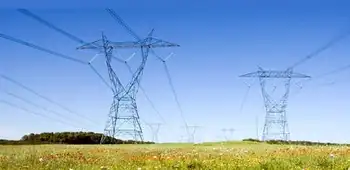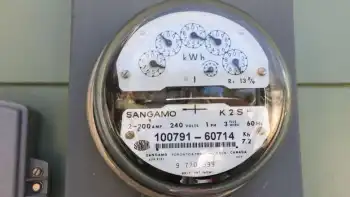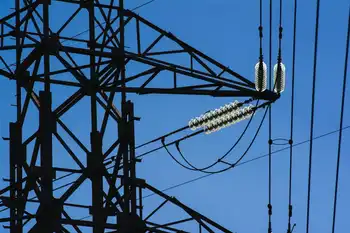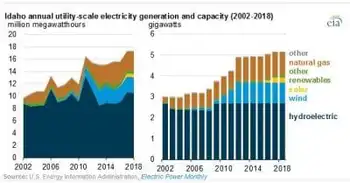Ottawa wants reactor commitment from Ontario
By Globe and Mail
CSA Z462 Arc Flash Training - Electrical Safety Essentials
Our customized live online or in‑person group training can be delivered to your staff at your location.

- Live Online
- 6 hours Instructor-led
- Group Training Available
In effect, the Harper government is turning the tables on the province after taking criticism from Premier Dalton McGuinty and industry executives over OttawaÂ’s management of the 60-year-old company and the prolonged privatization effort.
Bruce Power chief executive officer Duncan Hawthorne accused the Harper government of neglecting CanadaÂ’s homegrown nuclear industry while going out of its way to support AlbertaÂ’s oil sands.
“If Canada sees itself as being an energy superpower, then it has to be [about] more than just digging for oil,” he told the Empire Club of Canada.
Bruce Power, which operates a nuclear station in Ontario, signaled that it would not be a buyer, leaving SNC as the sole remaining bidder for AECL. Sources said that SNC requires a clear commitment from the McGuinty government to purchase Enhanced Candu 6 reactors as part of any privatization agreement with Ottawa.
There has been a flurry of discussions between the two levels of government in recent weeks, with Ottawa putting the demand for a purchase commitment to Ontario. But the province is deep in deficit and has an election looming in October, so the McGuinty government is wary of making any promises without knowing the price of the reactors and whether Ottawa would financially back a sale. In 2009, the province shelved a plan to purchase AECL reactors, saying the cost was too high.
A major sticking point is who would bear the financial risk of potential cost overruns. Neither the Ontario government, nor Ottawa, nor SNC-Lavalin is willing to accept the full financial hit if AECL canÂ’t deliver its new reactors on budget.
For years, Ottawa and QueenÂ’s Park have accused one another of failing to support CanadaÂ’s nuclear industry and AECL specifically. And the finger pointing continues.
Mr. McGuinty stressed that his government remains committed to buying two new reactors as part of its long-term plan to have nuclear power supply half of the provinceÂ’s electricity supply, and that it would prefer to purchase from AECL. But the Premier made it clear that the province expects Ottawa to stand behind any AECL reactor sale.
“We remain more than willing to sit down with the federal government through AECL to negotiate the purchase of new nuclear reactors for Ontario. We need them,” he told reporters in Ottawa.
At the same time, Mr. McGuinty is signaling he is in no hurry to ink a deal.
“We still have some breathing room,” he told reporters this week. “We don’t feel any need to rush into anything.”
Mr. McGuinty reiterated that Prime Minister Stephen Harper should halt the privatization until the two governments can agree on a reactor sale, but Mr. Harper – whose government has allocated $1.6-billion to AECL in the past two years – is clearly reluctant to take on any more obligations.
SNC is unwilling to fund the ongoing development of the ACR1000 reactor, given the lack of customers. AECLÂ’s Enhanced Candu 6 EC6 is a 700-megawatt reactor that is essentially an updated version of the current Candu 6 workhorse, which is operating in New Brunswick and Quebec and in South Korea, China and Romania. As a result, industry officials are more confident AECL could deliver a project on budget.
Bruce Power’s Mr. Hawthorne said Ottawa needs to provide much more than just financial support for an industry that employs 70,000 workers in Ontario. He criticized the government for not being a vocal supporter and advocate for the nuclear industry on the global stage. When AECL officials travel abroad to attract new business, Mr. Harper should be there as well, he said, much the way former prime minister Jean Chrétien promoted the company in China.
Instead, the federal government is “schizophrenic” about the industry, leaving the public wondering whether Ottawa wants to “feed it” or “kill it,” he said.
“Advocacy and support don’t always have to come with a chequebook attached,” Mr. Hawthorne told reporters. “Energy superpowers don’t hide their history.”











